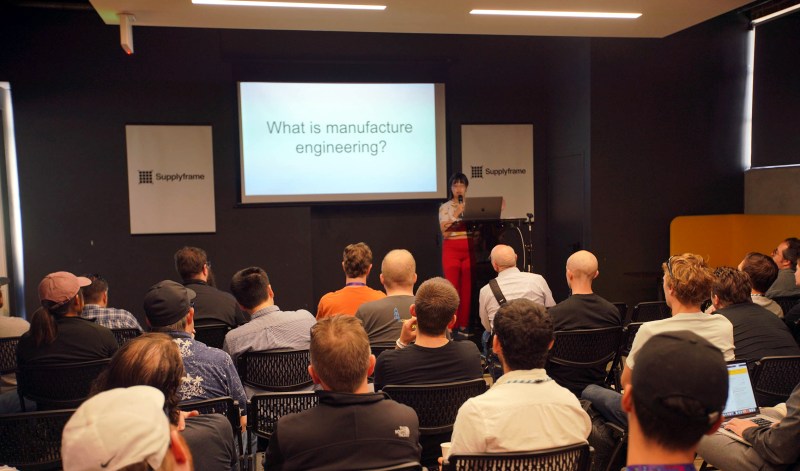Let’s be honest, Ruth Grace Wong can’t teach you how to be a manufacturing engineer in the span of a twenty minute talk. But no-one can. This is about picking up the skills for a new career without following the traditional education path, and that takes some serious time. But Grace pulled it off, and her talk at the 2019 Hackaday Superconference shares what she learned about reinventing your career path without completely disrupting your life to do so.
Ruth got on this crazy ride when she realized that being a maker made her happy and she wanted to do a lot more of it. See wanted to be “making stuff at scale” which is the definition of manufacturing. She took the hacker approach, by leveraging her personal projects to pull back the veil of the manufacturing world. She did a few crowd funding campaigns that exposed her to the difficulties of producing more than one of something. And along the way used revenue from those projects to get training and to seek mentorships.
Those mentorships can come in many forms. Much of her success stems from the personal connections she made at conferences, through online interactions, and at Noisebridge, her local hackerspace in San Francisco. One of the most interesting stories she mentions is a mentorship hack where she found people with the skills she wanted to learn, and convinced them to give a class about it if she did all the organizational legwork.
She had begun to learn Mandarin when the opportunity to start working on a manufacturing project with a startup came along. But her skills acquisition phase never ended. Ruth advocates for personal curiosity, and used her own as radar to pick up on new things to learn that others may have missed.
But what we all might benefit from most in this talk is her discussion at the end about finding time. Ruth says “your productivity will never increase”, because productive people are already using their available time. That doesn’t mean you can’t pick up new career skills on the side. But it does mean you need to throw some things overboard. From showing up late, to adopting a clean clothes box, Ruth certainly dipped into the well of life hacks to get there. She succeeded, and two years after the original epiphany she’s finally landed a job as a manufacturing engineer.

















Why would you want to, professionally? Shit pay, sixty hour work weeks…..no thanks
Depends on what you’re comparing it to.
Went from a twenty three year career in manufacturing engineering to a partially retired self employed certified financial planner. Quality of life is better, way less hours, better pay. No demand for engineers in this country, as reflected in the piss poor wages. Wouldn’t keave the house for less than $130k mid career
Wages in manufacturing engineering can be terrible, and the hours expected punishing. I worked in a casting plant as my first job after graduation, earning just 55k AUD. In short order, we learned that those who finished the grad program were only on 57k, and we all quit within 3 months.
Might have to get into financial planning myself.
this title has gotten the “if i only had a brain” song stuck in my head now…
bro her last name is wong
Manufacturing engineering is demanding and a bit insane, but can be fun for short periods of time in a decent company. I did not look at the video, but can tell you that, for North American sites, requires skills in test engineering, software engineering, mechanical engineering, statistical process control, and human safety engineering. For about ten years, have seen the MEs being consolidated into a single production engineering department that does QC + QA + test design + production design. Those that can adapt to this and rapidly learn new stuff get to keep their job.
Do not ever accept a job offer from a company where the factory has no formal processes, or where the MEs are not asked to sit in on the early product design meetings.
So where is her engineering degree from and when did she take the professional engineering certification test?
Oh! it’s one of those companies that hire people and give them a made up title…
So…almost no engineering jobs require or in any way benefit from having a PE license. Unless you’re the only engineer at a company submitting documents to a governmental agency, you don’t need it. It is mostly a Civil/Environmental environmental engineer thing.